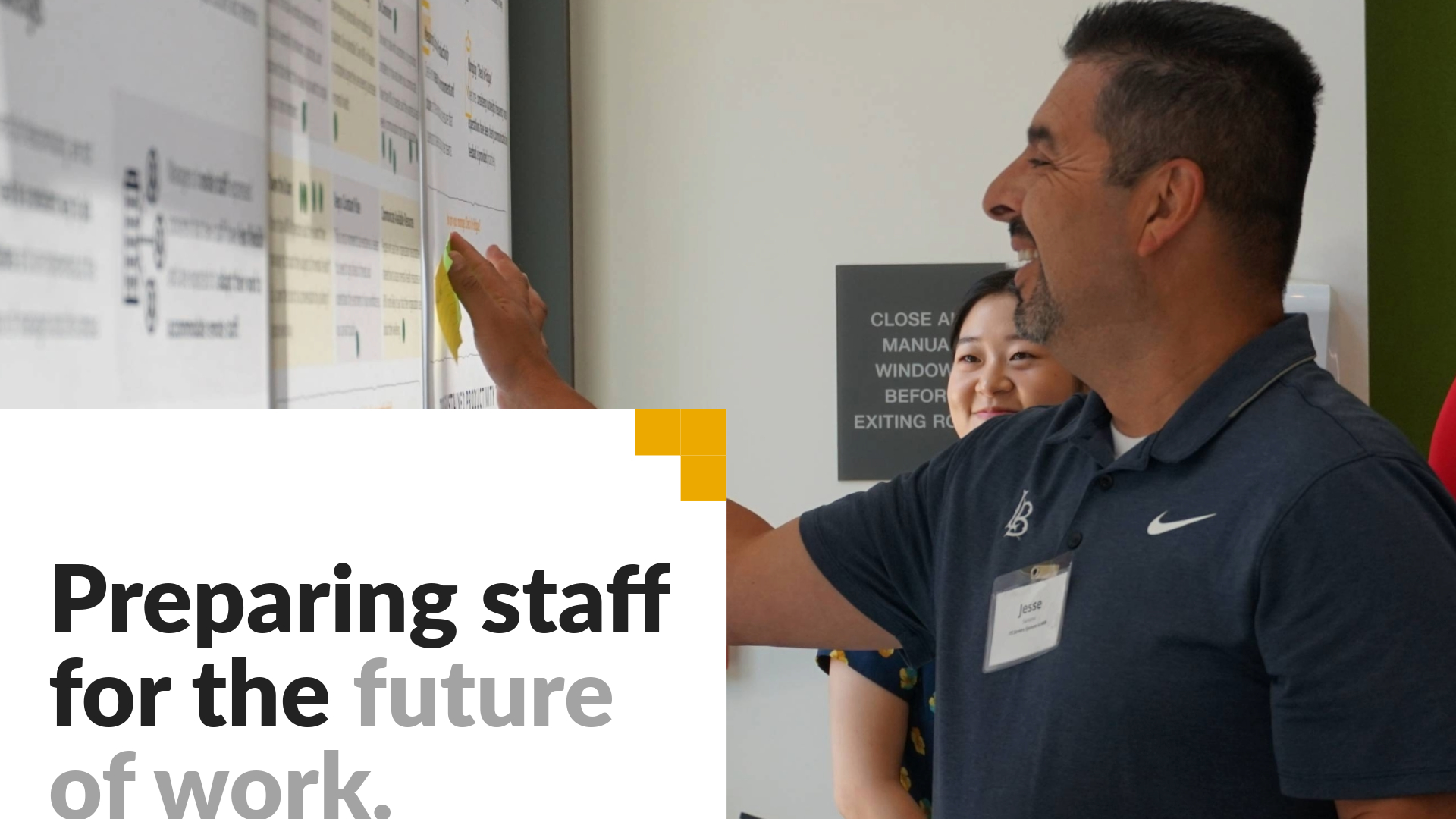Reimagining the Future of Work

Monumental shifts in the way we work put a magnifying glass on many of our university’s operations — from our telecommuting capabilities to our use of physical space on campus.
A tenet of cultivating resilience is remaining ready to pivot amid the ever-changing technological landscape in which we live. By being nimble and proactive, we position ourselves to support transformations in access, engagement, resilience, teaching, learning and research.
Instead of a temporary solution to an uncertain future, we know now that telecommuting and hybrid work models are the future of work, preferred by many employees across numerous industries. Formally integrating new work modalities into the structure of the employee experience at CSULB will ensure we are serving the workforce needs of tomorrow while reshaping the University for the better, with a focus on serving students. This work lays the foundation for expanding instruction and student resources beyond traditional formats.
To get there, the Reimagine Staff Action Zone team engaged Deloitte Consulting to perform an assessment of our university’s existing policies and develop a toolkit of best practices to shape long-term thinking about the Future of Work on our campus.
Decisions around these topics no longer focus simply on whether or not employees should be in-person or remote. As alternative work models become commonplace and expected, conversations must shift to how we can best optimize time face-to-face and when we’re off-site, capitalize on existing space for private and collaborative work, and set the stage for future shifts in these concepts.
At the core of the assessment is consideration of key elements that are foundational to successful telecommuting strategies. Those include available technology and tools to support collaboration from any location, physical buildings and spaces where work can take place, ways to evaluate productivity, impact of telecommuting on hiring and retention, and the broad communication of new changes to our campus community. Input from staff, faculty and students is integral to gaining a full picture of where CSULB’s capabilities currently lie, and how we might enhance our capacity in the future.
Institutionalizing these practices does more than position CSULB as an attractive place to work — although it’s one important pillar of this work. It also helps meet our sustainability goals, reducing parking congestion and commuting time. At the same time, we are building resilience in the inevitable event of some other crisis, one that may force us to transition outside of traditional workplaces. Our preparedness and ability to pivot swiftly in the face of disruption will prove invaluable in future crises.





